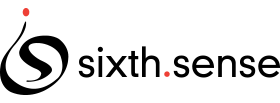
5 of 6: Working with Feedback – Ideas from Sixth Sense – Innovation
PDF: Working with Feedback – Innovation
It’s the start of the year. That often means feedback on what we have done over the past 12 months and/or you giving feedback to others. Feedback is great but where next? Here are some practical ideas from the business psychologists at Sixth Sense. You’ll find these and many more on our website at www.sane.works and if you have your own favourites, get in touch and we’ll add your ideas in.
The bold text represents some feedback that you might have had or that you want to give. The text that follows suggests what you should do about it or the guidance that you could offer to others.
Each week, for the next six weeks, we will tackle a common theme. Our fifth one is the problem of innovation. And don’t worry if you miss a week as back copies can be found at: www.sixthsenseconsulting.co.uk/blogs
Innovation
- No self-awareness? With a mentor, discuss how you have dealt with recent changes. What could you have done differently that would support a better outcome?
- Victim of habits? Identify some of the more repetitive or time-consuming processes in your area. Pick one to debate at a team meeting, encouraging people to think of ways to improve it.
- Narrow-minded? Talk to as wide a range of people as possible about a problem you are facing to get a variety of different perspectives and ideas on what you could do.
- Need inspiration? Sign up to a newsletter or e-update about your discipline. Reading about what other people or companies do can prompt ideas you can apply to your own work.
- Resistant to change? If your team is stuck in a rut about how things have been in the past and want to stay there, try to disrupt their negative thinking with positive “what could be” thinking around what the benefits of the upcoming change can be. Engage them in the process and try together to identify how the future will be better as a result of the change or at least how it is going to be so they can make the shift from the past to the future and stop morning what they feel they will lose.
- Struggling to engage others in changes? Make sure the team always see you standing fully behind decisions made by your directors. Make sure you never stoop to the level of complaining about the changes or decisions made and ensure that you uphold the company line. Decisions have been made for the best of the organisation and if you expect your people to accept it and get on with it, it is paramount that you are never seen to not support the changes yourself. If you feel less engaged in a particular decision, learn about the business case behind it so you can feel more informed and comfortable with it when you in turn speak to your people about it.
- Opposition to changes? If others are particularly vocal about their dislike of a decision or change, make sure you show respect for their perspective at all times but challenge their thinking by asking the correct questions, lay out the correct data to show clearly that the change is the way forward and will be beneficial for the organisation as a whole, even if it might have a perceived negative impact on the individual. Help them engage with the bigger picture and understand that some decisions are just greater than them and need to be taken even if they hurt.
- Struggling to set new directions? When the above is accomplished, engage the team in putting together a local plan for how to achieve it and identify each person’s responsibilities for ensuring they move in the right direction and don’t become stuck in the past or waste time and energy creating negativity by engaging in conversations about the past.
- Uncritical followers? To facilitate innovation help others become comfortable questioning the way things has always been. Why do we do it that way? Do we need to do it that way? How can we do it more effectively? What parts of the process is obsolete now? What is key elements we need to retain? How can we accomplish them better?
Further Reading
Books
The 360 Leader: Developing Your Influence from Anywhere in the Organization, by John C. Maxwell (Nelson Books, 2005).
This book has a useful emphasis on how anybody at any level in an organisation whether or not they have formal reporting lines can show leadership.
First Among Equals: How to Manage a Group of Professionals, by Patrick J. McKenna & David H. Maister (Free Press, 2005).
Some useful material in here on leading people who bring a range of expertise that you do not have yourself.
Maverick! By Richard Semler (Random House, 2001).
Who Moved My Cheese? By Spencer Johnson (Ebury Publishing, 1998).
Classic book on how to deal with change.
6 hats thinking, by Edward de Bono (Penguin Books, 2016).
A classic by the guru of conceptual thinking, strategic thinking, creativity and problem solving.
Did you spot the gorilla? By Richard Wiseman (Arrow, 2004).
A very entertaining book that helps you notice opportunities.
Other Resources
Videos
TED talk: “Speaking up is hard to do, even when you know you should.
Learn how to assert yourself, navigate tricky social situations and expand your personal power with sage guidance from social psychologist Adam Galinsky.”
http://www.ted.com/talks/adam_galinsky_how_to_speak_up_for_yourself

Start The Discussion